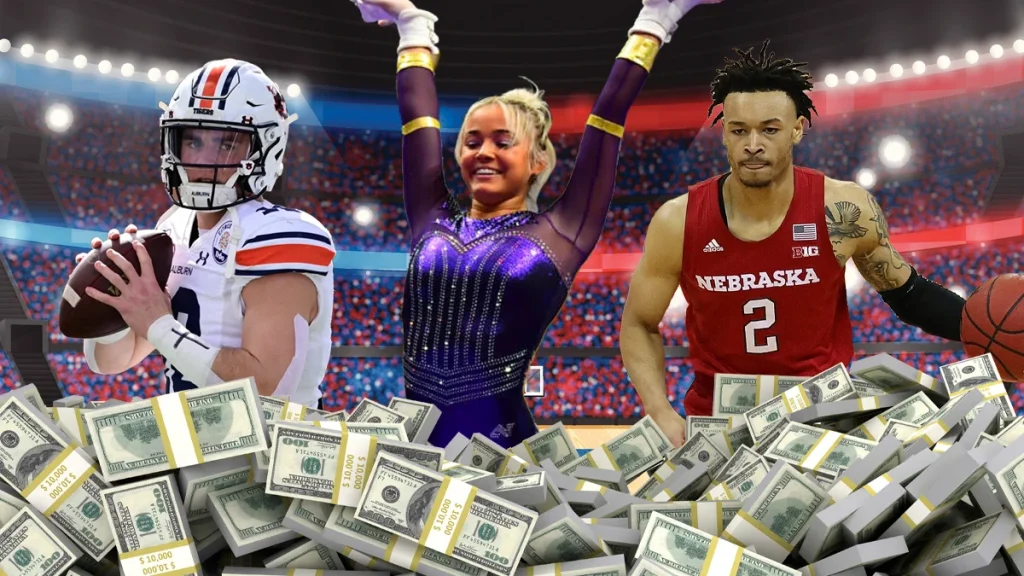When NIL Deals Favor Men, Women Athletes Pay the Price

Olivia Dunne, a standout from Hillsdale, New Jersey, has an estimated NIL (Name, Image, and Likeness) valuation of $4 million, with partnerships spanning Vuori (sports apparel), L’Oréal (beauty), American Eagle (clothing), and Grubhub (food delivery). Her deals highlight the enormous earning potential for student-athletes in the era of NIL rights. Yet, as promising as these opportunities are, they reveal a troubling trend: women’s collegiate sports are positioned to earn significantly less than comparable men’s programs, even under the new revenue-sharing model established by the House v. NCAA antitrust settlement.
The settlement, finalized this year, represents a historic shift in college athletics. For decades, the NCAA prohibited athletes from profiting off their name, image, and likeness, a rule that limited opportunities for both male and female players. The new revenue-sharing framework is meant to create financial equity by allowing schools to distribute a portion of their profits to athletes directly. While this change is a step forward, the way the model is being implemented raises serious questions about fairness, particularly for women athletes.
Historically, men’s sports, especially football and basketball, have dominated revenue generation in collegiate athletics. These programs receive greater television exposure, higher ticket sales, and larger sponsorship deals, which translates into higher NIL opportunities for male athletes. Meanwhile, women’s sports, even when highly competitive or nationally recognized, often struggle to attract the same level of media attention or corporate investment. The House v. NCAA settlement does little to correct this imbalance, meaning female athletes may continue to face systemic disadvantages despite the revenue-sharing model.
This disparity is not just about numbers—it’s about compliance with federal law. Title IX requires that educational institutions provide equal opportunities for men and women in sports. If the new NIL framework results in women athletes consistently earning less than their male peers, schools could find themselves facing legal scrutiny and public criticism. Advocates argue that without proactive measures, the promise of NIL revenue-sharing risks deepening existing inequities rather than alleviating them.
The impact extends beyond the balance sheets. For student-athletes, NIL deals represent more than money; they are opportunities to build personal brands, secure sponsorships, and establish financial independence at a critical stage in their lives. Women athletes who receive fewer deals or lower-value deals may miss out on these professional development opportunities. This imbalance could also influence the next generation of athletes, who may perceive limited financial prospects in women’s sports, affecting participation and investment at the grassroots level.
Examples like Olivia Dunne’s success can mask the broader issue. While her high-profile deals make headlines, countless female athletes receive smaller contracts or struggle to attract any corporate attention. Even in sports where women excel internationally, such as soccer or gymnastics, the gap in NIL earnings compared to men remains significant. This discrepancy underscores the importance of targeted policies and initiatives that ensure all athletes can benefit equitably from their talent and hard work.
As college athletics enters this new era, institutions, sponsors, and governing bodies must actively address these disparities. Ensuring equitable NIL opportunities is not just a matter of fairness; it’s a legal and ethical imperative. Without intentional effort, women athletes risk being left behind in a system that continues to reward men disproportionately.
The potential of NIL deals is transformative, but only if implemented equitably. Student-athletes, regardless of gender, deserve a platform to monetize their talent fairly and to build professional brands that can support them beyond their collegiate careers. The challenge now is ensuring that progress in the form of NIL rights does not inadvertently reinforce old inequalities, leaving women athletes to navigate a landscape where their achievements are celebrated—but not equally rewarded.

